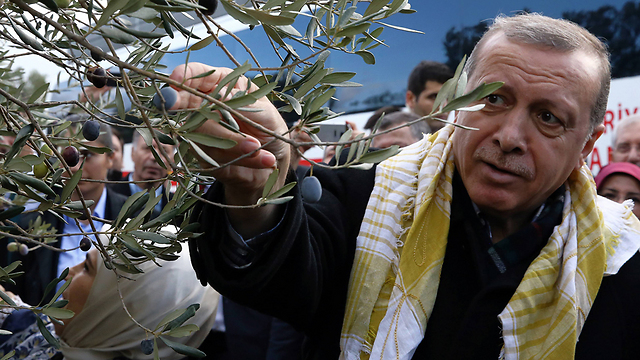The prospect of a thaw in Turkish-Israeli relations became likelier after a secret Wednesday meeting in Switzerland between Mossad chief Yossi Cohen; Joseph Ciechanover, Prime Minister Benjamin Netanyahu's special envoy to Turkey; and Feridun Sinirlioğlu, the Turkish Foreign Ministry's undersecretary.
The officials discussed a number of ways to normalize relations, which have been tense since the raid on the Marmara flotilla in 2010, in which nine Turks died.
The two sides reached the following agreements:
Israel will found a compensations fund for victims of the raid on the Marmara; all charges against Israel will be cancelled; the ambassadors will be returned to work; high-ranking Hamas official Saleh al-Arouri will be banned from entering Turkey; and discussions on a gas pipeline from Israel to Turkey will soon begin. It should be noted that these understandings require final authorization.
The amount of compensation Israel is to provide has not been finalized, but in previous discussions Netanyahu's representatives agreed to pay around $20-21 million.
This week Turkish President Recep Tayyip Erdoğan made statements that hinted at a coming reconciliation. "Normalizing relations with Israel will be good for the Middle East," said the leader, while clarifying that he was still waiting for compensation for the Marmara and the end of the "Israeli blockage" of Gaza.
Israeli sources said days ago that "the ball is in Turkey's court. We apologized and are willing to pay money." Sources in Jerusalem have said they believe new tension between Russia and Turkey (sparked by the latter's downing of a Russian plane) is responsible for the desire for normalization.
Turkey may be particularly interested in signing a deal that would build a natural gas pipeline from Israel to Turkey and from there to other countries.


















